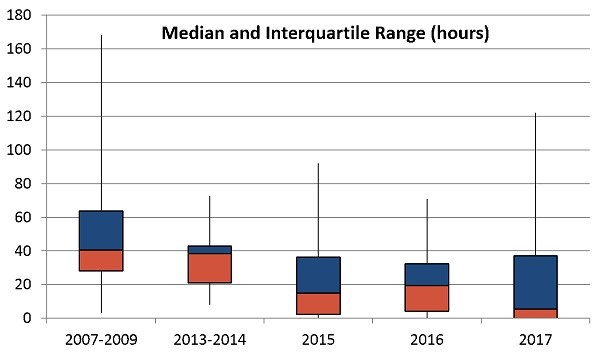SickKids study leads to new practice point for assessing management options for newly diagnosed, typical immune thrombocytopenia
Summary:
Engaging families in shared decision making is essential to examine the benefits and limitations of each treatment option for patients with newly diagnosed, typical immune thrombocytopenia (ITP).
With an increased emphasis on Choosing Wisely, engaging families in shared decision making is essential to examine the benefits and limitations of each treatment option for patients with newly diagnosed, typical immune thrombocytopenia (ITP).
These findings, based on a SickKids quality improvement study, have been published online as a practice point by the Canadian Paediatric Society (CPS) and will be featured in the February 15, 2019 print edition of Paediatrics & Child Health. CPS practice points provide clinical guidance and recommendations for paediatricians, family physicians and nurses across Canada.
Immune thrombocytopenia in children is an acquired disorder, resulting from autoimmune breakdown of platelets, usually in response to a viral trigger. Treatment options for newly diagnosed, typical ITP include observation or active treatment with steroids or intravenous immunoglobulin (IVIG). However, for most children who present with no or mild bleeding, managing with active therapy (steroids or IVIG) does not result in improved outcomes when compared with observation alone. This is an example of an ideal opportunity an ideal opportunity for shared decision making, with discussions among patients, parents and health care providers considering two or more clinically reasonable options and paying explicit attention to family values and preferences. For IVIG specifically, prior to choosing this treatment option, consideration should be given to its requirement for placement of an intravenous line, hospital admission and its side-effect profile, the most common of which is severe headache due to aseptic meningitis. That said, IVIG will raise the platelet count more rapidly than the other options.
To promote evidence-based and family-centred management of ITP at SickKids, a prospective quality improvement study was undertaken. Led by Dr. Carolyn Beck, Staff Paediatrician and Inpatient Unit Director, Paediatric Medicine (pictured above), the team struck a collaborative interdisciplinary working group and implemented a quality improvement bundle to decrease the use of potentially unnecessary treatment options (including use of IVIG) while optimizing family satisfaction. The bundle included the development of a patient information sheet; development of an evidence-informed, consensus-based protocol; and promotion of shared decision making via stakeholder engagement and education. Retrospective baseline data was collected from 2007-2009 with the initial intervention taking place from 2013-2015.
Deployment of the bundle decreased the use of IVIG for newly diagnosed, typical ITP from 88 per cent to 50 per cent with results maintained to-date. Length-of-stay (LOS) for this patient population has also decreased as a result of the changing treatment profile, including a subset managed as outpatients (Figure 1). While the main motivation of this project was that of Choosing Wisely -- to decrease the use of tests and treatments that are unnecessary, uncomfortable or may even cause harm -- the secondary benefits, such as more effective allocation of resources, are currently being assessed through an economic analysis.

The success of this initiative has, in part, been a result of the collaborative approach with stakeholders across the divisions of Paediatric Medicine, Haematology, and the Emergency Department, as well as clinicians in the Paediatric Medicine day hospital.
For more information on this initiative or on ITP management at SickKids, please view the resourcesbelow:
Primary Immune Thrombocytopenia (ITP) - CPS Podcast (available from PedsCases)

